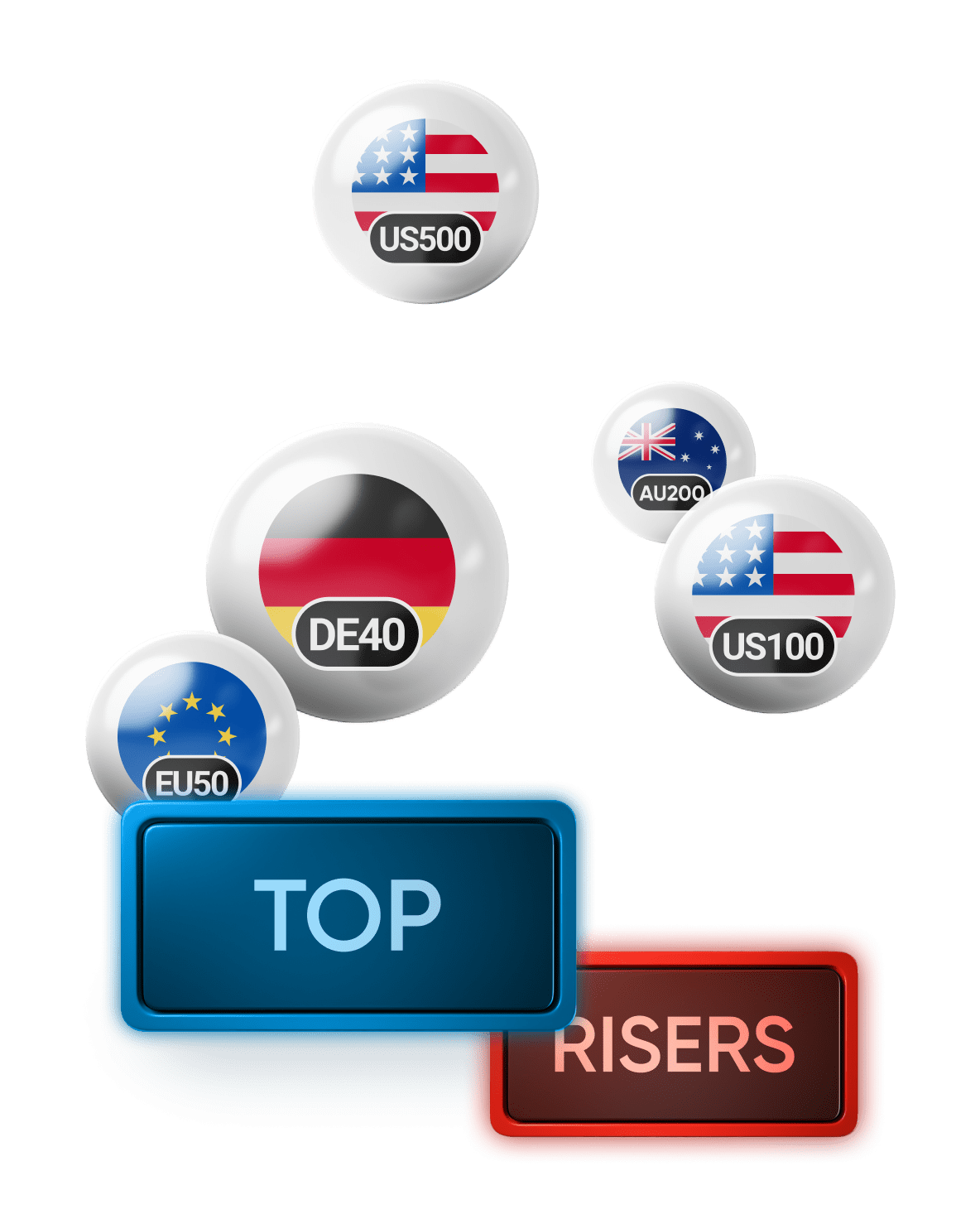Find out which index markets have climbed the most today. You can trade a range of popular indices like the US Tech 100, UK 100 and Germany 40 with us using CFDs or spread betting.

Stock market indices are calculated using various methods, each offering a unique view of market performance. Let’s take a look at three main types.
Price-weighted indices, like the Dow Jones Industrial Average, are based on the average price of included stocks. Higher-priced stocks have more influence on the index's performance. The index level is calculated by adding the prices of constituent stocks together and using a divisor, adjusted for corporate actions.
In capitalisation-weighted indices like the S&P 500, companies with greater market capitalisation carry more weight. To price the index, the total market capitalisation of the constituent companies is divided by a divisor.
Every stock in an equal-weighted index, regardless of the stock’s price or company’s market cap, has the same impact on the index’s price. The average return of all stocks determines the index value.
Stock indices differ from other financial markets in a range of ways, namely their purpose, composition, and how they’re traded.
Indices serve as benchmarks, summarising the performance of market segments through a selection of stocks calculated via specific methodologies (price-weighted, market cap-weighted and so on). You might be able to tell the health of an entire economy through an index – the S&P 500 in the US, say – where a constituent share would only give you an idea of the health of its parent company.
Where other financial assets like shares and currencies are directly bought and sold, indices are not a directly tradeable market as and of themselves. That said, traders can take a position on an index’s price using a derivative like an ETF or CFD.
As a retail trader, you have a range of options open to you if you want to take a position on the price of an index.
Exchange-traded funds, or ETFs, are ‘baskets’ of assets that replicate the performance of a specific index and are traded on an exchange like shares. Index futures contracts commit you to buying or selling an index on a future date. Options, on the other hand, provide the right to buy (call) or sell (put) an index at a set price before a certain date.
Here at Capital.com, you can trade indices using contracts for difference, or CFDs. These enable traders to speculate on index price movements, whether rising or falling, but come with a specific set of risks – especially from leverage.
Before you trade a leveraged product like a CFD, which can magnify both your gains and losses, you need to understand how it works and the risks involved. You can get started with our CFD guide. You’ll also need to stay informed on economic and political events affecting the market, practise with a demo account, and choose a regulated broker.